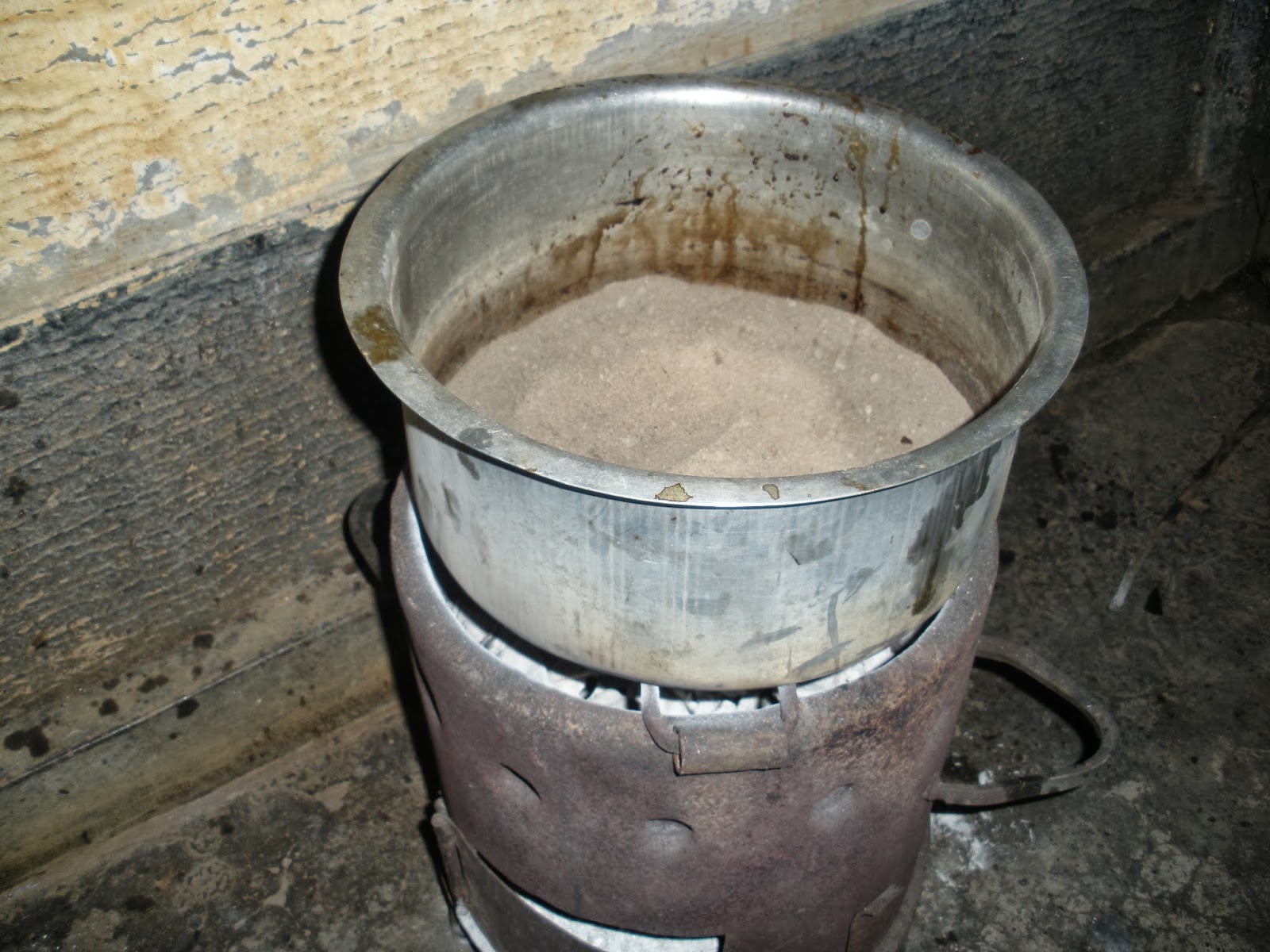Yeah for a modern toilet!! I did use a squat toilet at the workshop though. I am becoming a pro at not peeing on my feet!
I was so excited to see a hot water heater, but the electricity was out most of the time, so it didn't really matter. I was pleasantly surprised that the water stayed hot through the night.
Very essential mosquito nets

I am amazed that women can carry a child on their back while selling things.
This man had a chicken in case you needed one.
Mbale is known for oranges, mangoes, sugarcane, and tea leaves, so we stopped at the market on the way home to pick up some produce.
I bought all of this produce for a little less than $6: oranges, tangerines, tomatoes, avocados, onions, green peppers, and mangoes (L-R).
Lydia took me to her school (Nabumali High School) so that I could talk with some of the students and observe a government school. Now, a government school is different from the public schools at home because the families pay tuition and the students stay at the school. Most of the schools are boarding schools, but families can visit. This school is one of the best public schools in Mbale. Although it is dilapidated and very run-down, almost all of the teachers have a degree and students adamantly agree that teachers make a difference in their education.
This was a secondary 2 class and the students are about 13-14 years old. School is not by age here, but by the levels passed through examinations. This is Lydia's class. She gave me time with her students so that I could ask questions and they could ask me questions about America. Some of their questions were:
- Do students have to wear uniforms?
- Do you beat your students?
- What subjects do students learn?
- Do students have early prep (individual study time from 4-5:00 a.m.)?
- What time do students go to school?
- What sports do students play?
- What is the weather like there?
- Are students allowed to have relationships?
There was some construction going on outside, so I had to get close and personal with students so that I could understand them.
This is a chemistry lab. I know...scary! It reeked of chemicals!
This was a science or chemistry class. It is smaller because the students only have to take it if they specialize in sciences.
front offices
After I finished talking with the class, I pulled out a smaller group to talk with them about their writing experiences. This was the group of girls. Remember girls' heads are shaved for sanitation purposes until they reach university level.
This was the boys that participated in the smaller group.
This is a pool that is no longer in use, but they are renovating it to use next year.
There was a strike in the 70s where the students burned down the offices of the school, so they are just now rebuilding the offices.
After my time at the school, I headed to Lydia's house for dinner. She lives on campus, so it was interesting to see one of the campus houses. She had several people helping cook including her adopted son, Kasim. Kasim showed me how to make chapatis. He makes them effortlessly, but I am sure it will take me a long time to make them as good as his. First, he mixes the dough (flour, oil, water, salt) and then he rolls it out. He fries each chapati over charcoal.
The chapatis waiting to be fried.

Yummy fried chicken cooked over charcoal.
Before dinner, Lydia took me to her garden. We saw coffee beans and pole beans. The soil here is so fertile and food grows everywhere. As we were walking back, I saw some white, feather thing in the grass. Upon closer reflection, I realized it was a chicken's head. I pointed it out to Lydia and she said yes, you are going to be eating that chicken soon. It still amazes me how people cook food that was just slaughtered or fruit/veggies they harvested from their gardens. Cooking is so arduous here because you have to go get the water (most places have several community faucets) and then buy charcoal.
I still can't get used to seeing coffee beans everywhere. I absolutely love it!
 |
| Bananas - These are not ripe, so they are more like potatoes. They use them to make matooke, which is being steamed in banana leaves in the pot below. |

This is Lydia with two of the neighborhood girls. They were really shy and scared of me, but they posed for pics.
This is my dear friend, Kevin. She is amazing! She will be heading to Australia in about two weeks to work on her Ph.D. I will miss her severely.
This is Lydia's local oven. She heats sand over charcoal and then puts a metal lid on it and more charcoal. She made a pineapple upside cake using this method and it was delicious!

Lydia also gave me this cute ponytailer to use in my hair. She was very sweet. Overall, I had a great and overwhelming week. I am so thankful for my experiences and I hope that you can share in my experiences through this blog.

































